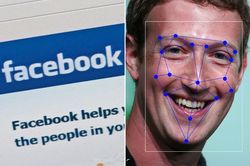
On April 28, 2016, New York Attorney General Eric Schneiderman announced Facebook engineers will help his office use “innovative data and analytical methods” to combat online child sex operations. The plan involves the use of algorithms to scour internet ads. Specifically, the algorithms will look for patterns in images, text, phone numbers, and other data that turns up on sites where commercial sex is sold.
“Facebook is pleased to be working with Attorney General Schneiderman on his efforts to combat the scourge of human trafficking. We look forward to helping the Attorney General and his staff bring attention to this important issue,” said Facebook’s director of state public policy.
Facebook declined to further provide details, which has allowed people to speculate that Facebook will allow the government to use their massive database of “faceprints” to identify victims who appear in the sex ads. Faceprints serve as distinct digital identifiers, similar to a fingerprint, that are based on the unique features of a person’s face. Facebook currently uses the technology to suggest tags for people when users post a photos.
In the case of sex-trafficking victims, law enforcement agencies could cross-check images of their faces to discover their identities—and possibly pictures of the people who are controlling them.
In its release describing the initiative, the Attorney General’s office cited examples of pimps and sex trafficking rings who posted pictures of minors on websites like Backpage and Craigslist, describing the practice as “modern day slavery.”
The Attorney General’s office announced the Facebook partnership as part of a two-day summit on human trafficking that took place in Manhattan, New York. Facebook and Schneiderman have collaborated in the past, most recently on a project to send AMBER Alerts to the NewsFeeds of social network users when a child goes missing.
This post was written by Fight the New Drug. You can find the original post here: http://fightthenewdrug.org/facebook-joins-fight-against-sex-trafficking-with-face-scanning-technology/
 RSS Feed
RSS Feed